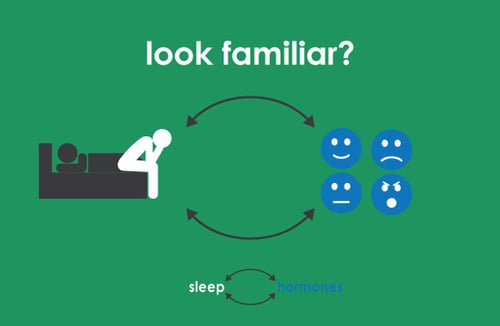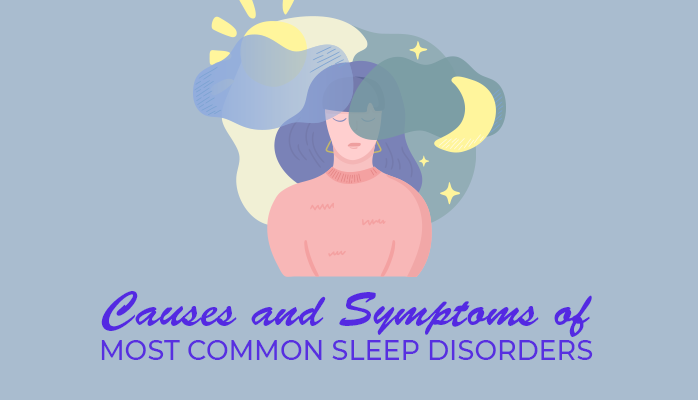Sleep disorders are fairly common, some more than other. The thing they all have in common, however, is their ability to disrupt sleep. Chronic sleep disruptions can make you feel less like yourself. Sometimes, theys can even make you feel and behave like a completely different person.
If you are reading this, you might be wondering if you have a sleep disorder or problem. Here are causes and symptoms of the most common sleep disorders.
What is Obstructive Sleep Apnea and Its Symptoms and Causes?
Sleep apnea occurs when your upper airway becomes blocked while sleeping. There are two primary types of sleep apnea:
- Obstructive sleep apnea (most common): physical blockage of airway, such as when your throat muscles relax and close your airway
- Central sleep apnea: brain causes respirations to stop
There is also a rare form of sleep apnea called complex sleep apnea, which includes both central and obstructive sleep apnea.
Some of the most common symptoms of obstructive sleep apnea are:
- Loud snoring
- Restless sleep
- Morning headaches
- Severe daytime sleepiness
- Chronic irritability
- Hormone fluctuations
 Sleep deprivation from sleep apnea can affect your hormones
Sleep deprivation from sleep apnea can affect your hormones
Sleep apnea is associated with high blood pressure, diabetes, stroke, and heart disease.
What is Insomnia and Its Symptoms and Causes?
Insomnia is a condition where you chronically feel as if you are not getting enough sleep. People in Alaska may be particularly prone to this because of the extreme light/darkness condition. There are three types of insomnia: difficulty falling asleep, difficulty staying asleep, and waking up much earlier than desired.
Insomnia can be detrimental in minor cases, to debilitating in severe cases. In addition to the above symptoms, insomnia may also cause:
- General performance loss in many important areas of life (work, relationships, etc.)
- Daytime tiredness and fogginess
- Anxiety and depression
- Mood troubles
In many cases, there are identifiable causes for insomnia, such as stress, medications, and depression/anxiety.
What is Circadian Rhythm Disorders and Its Symptoms and Causes
Your circadian rhythm is your biological sleep clock. This biological sleep clock is a part of your brain called the suprachiasmatic nucleus of the hypothalamus, and sits right behind the nerves of your eyes.
Circadian rhythm disorders are often in response to your external factors:
- Extreme light and darkness (i.e. Alaska)
- Jet lag
- Shift work
- A circadian rhythm that is “non-standard” – i.e. if you natural schedule is sleeping from 4am-11am, but your work schedule begins at 7am
The primary symptom of circadian rhythm disorders is you want or need to sleep, but can't.
What is Restless Legs Syndrome and Its Symptoms and Causes
Restless leg syndrome is when you have discomfort in your legs and feet at night. The primary symptoms of this include the following:
- Excessive leg movements
- Rhythmic leg movements
- Cyclic leg movements
All of these movements take place at night and provide temporary relief of discomfort. The reason restless leg syndrome is troublesome is because it can delay sleep or cause disruptive sleep.
What is Narcolepsy and Its Symptoms and Causes
Narcolepsy is a brain disorder that causes excessive daytime sleepiness. Most people with narcolepsy don’t suffer from sudden attacks as displayed on television.
In addition to chronic sleepiness – as in you never can get enough sleep – other symptoms include:
- Sleep paralysis
- Cataplexy (sudden loss of muscle tone)
- Diminished alertness
Narcolepsy is fairly rare, with fewer than 20,000 cases per year.
What You Can Do About Sleep Disorders
If you are concerned you have any of the above sleep disorders, the first step to getting healthy is establishing a diagnosis, if one should exist, by either:
- Consulting with a sleep specialist
- Consulting with your healthcare practitioner
- Getting a sleep evaluation


